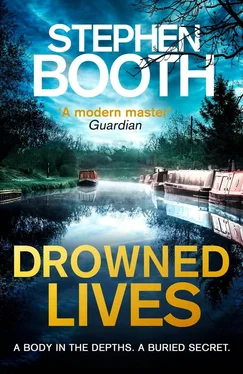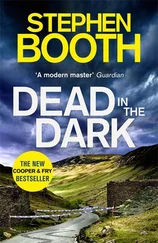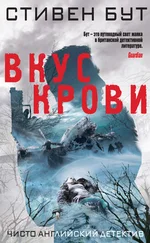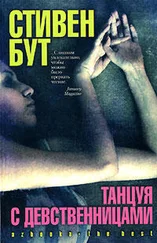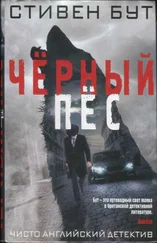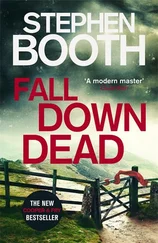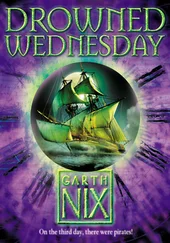‘Okay, mate, you’ve let me know. But it will all be different in a few months’ time, won’t it? We won’t have to go through all this once we get into profit.’
‘Sure,’ said Dan. ‘Sure, it’ll all be different then.’
It was only two days later that the letters arrived. It was a Saturday, and I’d stumbled blearily down to a breakfast of cornflakes and coffee rather late, having spent Friday night at the Stowe Arms playing pool with a crowd of regulars. As usual after a night out, my pockets felt lighter and my head several times heavier.
It wasn’t until I was halfway through my second mug of coffee that I started to take notice of the mail I’d picked up as I passed the front door. Mail usually meant bills and bank statements, Reader’s Digest prize draws, and offers of credit cards I couldn’t possibly afford. But this morning there were two items that stood out. They gave off a subtle aura that said ‘read me’ far more effectively than any claims of ‘Important’, ‘Exclusive’ and ‘You may already be a winner’.
The first envelope was long and white, with the address neatly typed, and instead of a stamp it had been passed through a franking machine that left the name of Staffordshire County Council imprinted in the top right hand corner.
With a churning feeling in my stomach, I slit the envelope open using my marmalade knife. It was a terse instruction to attend an appointment with the Human Resources department on a date that was two weeks away, the very day that I was due to return from leave. It didn’t say what the appointment was about. But it didn’t need to.
My brain was reluctant to consider the implications of the first letter just yet, so I turned to the second. The envelope was smaller, and though not exactly used before, it looked faded, as though it had been sitting around for a long time since it was originally bought. My name and address filled most of the front in an unsteady scrawl, and the stamp wasn’t stuck on straight. It was from Samuel Longden, in response to the note I’d pushed through his door two days before.
Though couched in almost formal phrases, his words made his distress obvious. He pleaded with me to reconsider. He hinted at revelations he’d yet to make which would undoubtedly change my mind. He talked about a mysterious disappearance, he repeated his claim of a great injustice. He begged me to meet him one more time, that afternoon at six o’clock in the market square, by the statue of James Boswell.
And he mentioned my grandmother’s name too. Three times, like an incantation. I felt an odd shiver of apprehension when I read it, as if I might turn round and see Mary Buckley herself sitting in the corner of the room, fixing me with that stare.
I looked at the two letters, one in each hand. My brain might not have been working properly, but my hands told me the only thing to do. I dropped the first letter and read Samuel Longden’s again. The only way to avoid thinking about the meeting in two weeks’ time was to concentrate on the meeting today. Six o’clock in the market square?
But no — of course, I couldn’t actually go. The idea was ridiculous.
As it happened, I was a bit early. Dusk was falling, and it was still cold, and I didn’t fancy standing around outside shivering in the wind that blew down Dam Street towards the market square. Nearby in Conduit Street the Earl of Lichfield was already open. I slipped inside and got myself a seat by the window, where I could watch the corner of the square with a pint of bitter in front of me.
Although it had hunting prints on the wall and was right next door to a McDonald’s, the Earl of Lichfield was in the Good Beer Guide , which was enough for me. From the pub, I had a view of the former Corn Exchange. Tucked under its arcade were a series of small shops — Fonebase, Supasnaps, a dry-cleaners, a clock repairers.
The first few sips of the beer made me feel better. The lethargy and muddle-headedness began to pass off as the alcohol seeped through my veins. I started to wonder what on earth I was doing there. A little nagging voice at the back of my brain was telling me I’d already made my judgement on Samuel Longden’s project. So why was I going back on my decision just because an old man was upset about it? Let him find somebody else to help him with his crackpot idea.
An even more insistent voice was starting to remind me that not only was my dubious career as a county council information officer rapidly drawing to a close, but my hopes were pinned entirely on the future success of winningbid.uk.com . Although advertising bookings had been made, all that we had to show for it so far was the sign that had gone up on that empty building on the enterprise park. The reality was that I should be concentrating all my efforts on earning a livelihood, not wasting them humouring an eccentric old man like Samuel when there wasn’t any money in it for me.
The more I drank, the clearer the situation became, and the more obvious it was to me that, if I was ever going to be decisive in my life, the moment was now.
Then I saw the old man arrive. He was walking slowly across the square from the direction of Dr Johnson’s house, moving stiffly with the aid of his stick. He looked older and more infirm than ever, his black overcoat hanging from his body like a loose cape.
He gazed around for a moment, and I could see his breath coming in short puffs in the cold air. For a while, Samuel stayed on his feet. He read the plaques on the buttresses of the old St Mary’s Church. I knew they commemorated four men who’d been burned at the stake in the square, including the last burning in England, that of Edward Wightman in 1612.
Samuel watched a family pass in front of him — the parents laden with shopping bags, their children dragging reluctantly behind. Then he settled himself on a bench directly under the Boswell statue. I looked beyond him to the solid bulk of the cathedral, a monument to nearly thirteen hundred years of Christian belief. Over the centuries it had swollen into an unfathomable Gothic immensity that filled the sky above Lichfield.
Samuel’s arrival had frozen me with indecision again. I’d been on the point of getting up and leaving the pub to meet him on the bench. But my hand had automatically groped for my glass again, and sense returned as the beer touched my lips. I drained the last of my pint and ordered another. Then I sat down to watch the old man, as the dusk gathered and thickened over the city.
He must have been cold sitting there. He tapped the ground with his stick, and looked from right to left, raising his head hopefully every time someone passed. Once or twice he turned and looked directly towards the pub, but I knew he couldn’t see me through the pattern of the glass in the window.
Gradually, the old man stopped hoping. It took over half an hour, but eventually I saw his shoulders slump. He rubbed a hand over his face and sat very still, staring at two children who were playing with the pigeons, chasing them in small, clattering flocks towards Dam Street.
I remained in my seat, barely aware of the increasing activity of the pub around me. I couldn’t walk out into the cold air and end the old man’s misery, yet I was unable to tear myself away from the window and the sight of his distress. My glass stood empty before me on the table, attracting curious stares from the barman and other customers. The street lights had come on, and the market square began to empty.
Finally, Samuel stood up. He moved with difficulty, and the paleness of his face and hands was startling against his black coat in the gloom. He left the square and walked towards the Corn Exchange, pigeons bobbing their heads and weaving round his feet. He moved slowly under the arcade only a few yards from where I sat, past the lighted windows of the clock repairers and the dry-cleaners, past Supasnaps and Fonebase. Two office workers on their way home stepped aside as he approached, recognising his weariness and air of defeat.
Читать дальше
